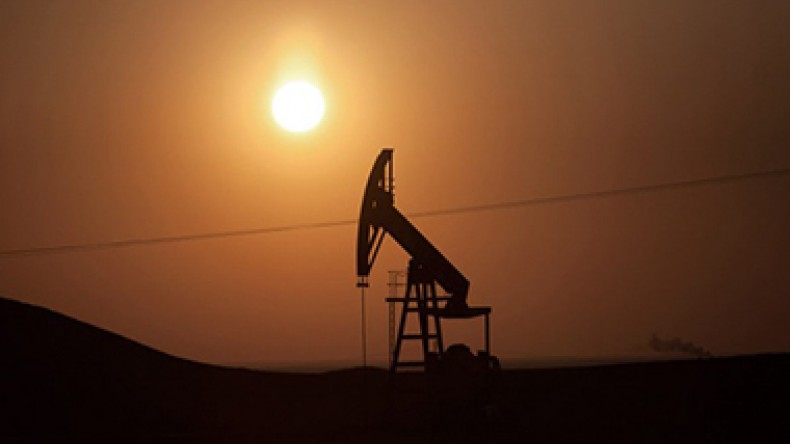
Eurasianet.org: If oil market does not recover within 2-3 years, Azerbaijani government could well have social crisis on its han
Azerbaijan is one of the most oil-dependent economies in Eurasia and has been hit hard by lower oil prices. If the current fiscal trends persist, regional stability is likely to come under growing threat, the American portal Eurasianet.org writes.
The country’s 2015 budget, which envisaged a high level of spending on infrastructure projects, was drawn up under the assumption that the average oil price would be $90 per barrel. Now the oil price is hovering around $60 per barrel. Budget cuts, then, seem unavoidable in the near future for oil and gas exports are simply too important for Azerbaijan: they account for 95 percent of the country’s exports and more than 70 percent of revenue, the article reads.
According to the report, the Central Bank of Azerbaijan (CBA) devalued the local currency, the manat, by 33.5 percent against the US dollar and 30 percent against the euro on February 21, 2015. The devaluation came as a shock to many Azerbaijanis. Retailers increased their prices shortly after the Bank’s move, and further price hikes are anticipated. Economists expect an increase in the cost of most food products, public transport and utilities, a development that would likely intensify discontent among the population. Several small protests have occurred in Baku and Lankaran.
“The devaluation is forcing officials to revise state budget parameters. While the government is expected to maintain defense and social spending at existing levels, infrastructure expenditures may well take a hit. Private sector investments in infrastructure projects are also likely to decrease. Investors will now think twice before backing projects with unclear financial returns,” the article reads.
One of the first casualties is likely to be the Khazar Islands project, a $100 billion initiative to build 41 artificial islands in the Caspian Sea. Although the project is primarily being financed privately, it is far from completion and it will now be much harder for the developer to attract new financing. Another project likely to suffer is Baku White City, an office and residential complex. Experts believe that government funding for this and similar projects will like dry up after the inaugural European Games, the article says.
As the article has it, in the absence of a sharp and sustained increase in the oil prices in the coming months, it is clear that the Azerbaijani government will no longer be able to sustain a high level of economic growth. Living standards accordingly will decline, Eurasianet forecasts noting that the recent shifts in global oil markets have highlighted a serious long-term problem for the Azerbaijani economy – its lack of diversification and heavy dependence on energy revenue. Moreover, the country’s oil reserves will be depleted in 15-20 years.
“If the oil market does not recover within two to three years, quality-of-life standards in Azerbaijan are likely to fall sharply. In that case, the government could well have a social crisis on its hands,” Eurasianet concludes.
Newsfeed
Videos






























